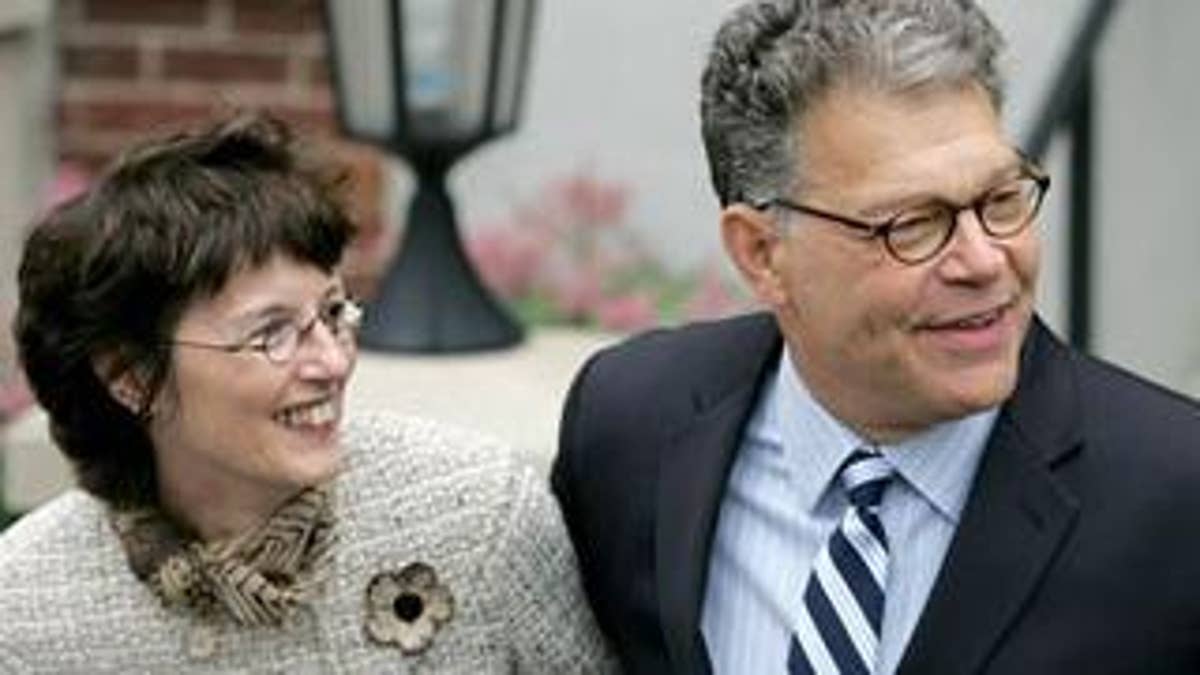
Minnesota's governor certified Democrat Al Franken as the winner of the state's vacant Senate seat after the state's high court ruled that Republican opponent Norm Coleman had exhausted his options for appealing the result.
Coleman responded to the court ruling by conceding the election and wishing Franken well, ending an eight-month legal battle that directly affects the balance of power in the Senate.
When Franken is seated, possibly next week, it will give Democrats a 60-vote, potentially fillibuster-proof majority in the Senate.
Franken told reporters that he was humbled "not just by the closeness of the this election but by the enormity of the responsibility that comes with this office. We have a lot of work to do in Washington but that's why I signed up for the job in the first place."
Franken said he expected to be seated next week but downplayed the significance of his victory giving Democrats a coveted 60th seat in the Senate.
"I'm not going to Washington to be the 60th Democratic senator. I'm going to Washington to be the second senator from the state of Minnesota," he said. "That's how I'm going to do this job."
Coleman, who ran last year as the incumbent, could have tried to take the case to the federal Supreme Court, but he told reporters outside his home in St. Paul that continuing to drag out his challenge would hurt his state.
"I just had a conversation with Al Franken congratulating him on his victory," Coleman said. "The Supreme Court of Minnesota has spoken. I respect its decision and I will abide by its result. ...We have reached the point where further litigation damages the unity of our state."
Coleman, though, said he had no "regrets" about his prolonged legal challenge to this point.
Republican Gov. Tim Pawlenty and Secretary of State Mark Ritchie signed the election certificate for the Senate race Tuesday evening. The certification now will be sent to the U.S. Senate.
Earler, Pawlenty thanked Coleman for his service, calling him an "extraordinary leader," and congratulated Franken.
Democrats applauded the state Supreme Court's decision Tuesday afternoon and welcomed the former "Saturday Night Live" comedian to the halls of Congress.
President Obama, in a written statement released moments after Coleman conceded, said he looks forward to working with Franken to "build a new foundation for growth and prosperity by lowering health care costs and investing in the kind of clean energy jobs and industries that will help America lead in the 21st century."
The Minnesota Supreme Court's ruling that Franken's victory should be certified was unanimous.
"We affirm the decision of the trial court that Al Franken received the highest number of votes legally cast and is entitled under (Minnesota law) to receive the certificate of election as United States Senator from the State of Minnesota," the court wrote in its 5-0 ruling.
With Franken and the usual backing of two independents, Democrats will have a big enough majority to overcome Republican filibusters.
The earliest Franken would be seated is next week because the Senate is out of session for the July 4 holiday, said Jim Manley, a spokesman for Senate Majority Leader Harry Reid.
The election certificate also requires the signature of Minnesota Secretary of State Mark Ritchie. Ritchie, a Democrat, said he was ready to sign it "as soon as the governor issues it."
The court's ruling stopped short of explicitly ordering the governor to sign the document, saying only that Franken was "entitled" to it.
Coleman's appeal hinged largely on whether thousands of absentee votes had been unfairly rejected by local election officials around the state.
The unanimous court wrote that "because the legislature established absentee voting as an optional method of voting, voters choosing to use that method are required to comply with the statutory provisions."
They went on to say that "because strict compliance with the statutory requirements for absentee voting is, and always has been required, there is no basis on which voters could have reasonably believed that anything less than strict compliance would suffice."
The Associated Press contributed to this report.
























